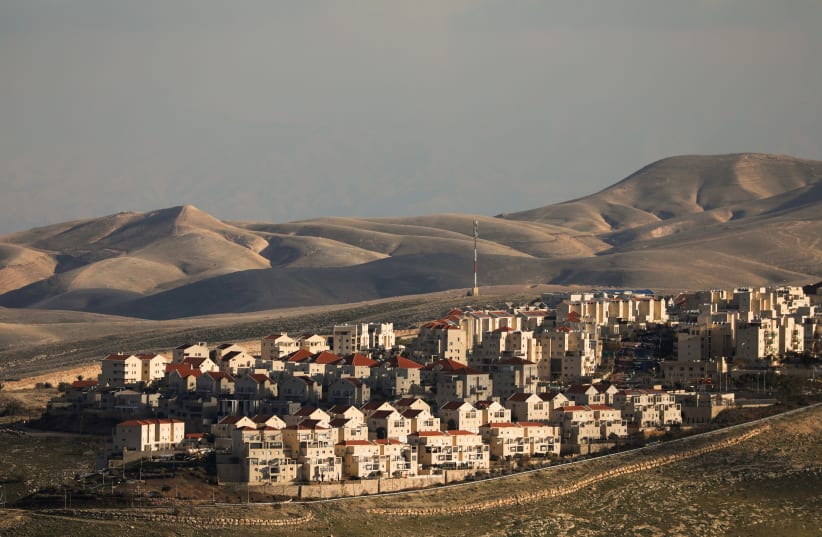The European Union and France warned Israel that it was undermining a two-state solution by advancing plans to build close to 3,500 new homes in an unbuilt area of the Ma’aleh Adumim settlement, known as E1.
It issued a similar warning on February 23rd when Israel spoke of Jewish building in east Jerusalem, including a new neighborhood in Givat Hamatos and an expansion of Har Homa.
“Settlement construction in these areas will cut the geographic and territorial contiguity between east Jerusalem and the West Bank. Construction in E1 will sever the connection between Northern and Southern West Bank,” the EU’s foreign policy chief Josep Borrell said in a statement he issued on Friday.
“The EU reiterates its call on Israel to halt settlement construction, to suspend the publication of tenders and to refrain from any measures aimed at the advancement of such construction plans. Settlements are illegal under international law,” Borrell said.
“We call on both parties to engage in a dialogue and to refrain from any unilateral action that undermines the viability of the two-state solution,” he added.
The French Foreign Ministry said that the E1 area is of “strategic importance to the two-state solution and the territorial continuity of a future Palestinian state.”
France’s ambassador was one of eight European ambassadors that met on Wednesday with Deputy National Security Advisor Reuven Azar to express their opposition to these projects. The EU foreign ministers are expected to meet on March 23rd to discuss the Israeli-Palestinian conflict, including US President Donald Trump’s peace plan.
Under the terms of that plan, Israel can apply sovereignty to all West Bank settlements. It’s presumed that this applies to the E1 area, which is part of Ma’aleh Adumim’s municipal boundaries. Givat Hamatos and Har Homa would remain within sovereign Israel.
Israel holds that development of all three projects is important to ensure a unified Jerusalem.
On Thursday the Sovereignty Movement held a march in the Gush Etzion region of the West Bank, which included Diaspora Affairs Minister Tzipi Hotovely.
Hotovely said that the “Likud will apply sovereignty,” to the settlements, but that it would not support “the establishment of a Palestinian state.” The Trump peace plan speaks of a demilitarized Palestinian state on 70% of the West Bank and in areas of Jerusalem beyond the security barrier. Netanyahu has promised to support that plan.
Among those on the sovereignty march were the movement’s co-chairs Nadia Matar and Yehudit Katzover as well as World Zionist Organization Vice Chairman Yaakov Hagoel. They were joined by French immigrants.
Matar urged Israelis who support sovereignty to vote in the March 2nd election. “The majority of the People of Israel are right wing. All we need for a victory of the Right is to get to the 300,000 right-wingers who did not vote last time and make sure they go out and vote.”
Samaria Regional Council head Yossi Dagan on Friday said he had just returned from a visit to the European parliament this week and had received support from 15 of its members against the UN black list of companies doing business with Israeli entities and people located over the pre-1967 lines in east Jerusalem, the West Bank and Gaza.
A European parliamentary group that visited Israel and the Palestinian Territories last week, in contrast, called on Europe to do more against settlement products than simply label them.
The four-member delegation was headed by a Spanish member of the European Parliament Manuel Pineda, who chairs the Delegation for Relations with Palestine.
On Thursday, he spoke to reporters at a lookout point near the east Jerusalem neighborhood of Isawiya and called on the EU to respond to the Trump peace plan by unilaterally recognizing a Palestinian state.
“We think it is essential that the EU recognize the state of Palestine, we also urge the member states to do so,” Pineda said.
“We come at a very important time, a very difficult time. We have the Trump “Deal of the Century,” the fraud of the century. It consecrates and sets in stone the violations of international law against the Palestinian people,” said Pineda.
